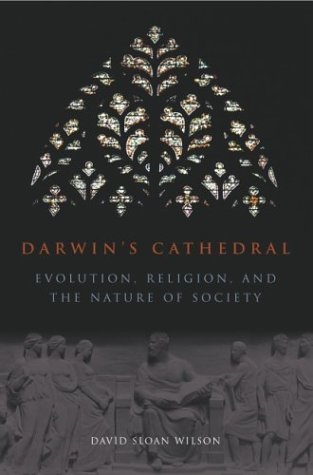










God or evolution? Though the debate about our origins has swirled in epic controversy since Darwin's time, David Sloan Wilson bravely blends these two contentious theories. This has been tried before, of course, mainly by religious intellectuals. What makes Darwin's Cathedral stand out is that Wilson does not pursue the classic "intelligent design" argument (evolution is God's hand at work), but instead argues that religion is evolution at work.
Wilson sees religion as a complex organism with "biological" functions. He argues that the social cohesiveness of religion makes it analogous to a beehive or a human body--and, in fact, religious believers sometimes employ these metaphors. He writes, "Thinking of a religious group as like an organism encourages us to look for adaptive complexity.... Mechanisms are required that are often awesome in their sophistication." To Wilson, therein lies the astonishing complexity of religion, just as in the biological world.
Following Wilson's argument requires understanding the rudiments of evolutionary biology; a smattering of theology, history, anthropology, sociology, and psychology is helpful, too. But the reasoning isn't as challenging as Wilson warns in the introduction. For educated readers, it's an accessible book.
In just 260 pages, Wilson can't begin to do justice to the broad swath of intellectual work he's cut out for himself. And ultimately, the book's main failing is its simplicity. In addition, his approach to religion is so clearly an outsider's that he is unlikely to win many converts. Adaptive-mechanistic explanations of forgiveness and altruism may be intriguing to the atheist in the ivory tower, but they are likely to elicit little more than a bemused and passing interest from believers. --Eric de Place

